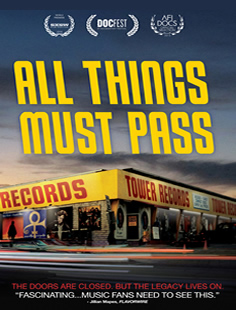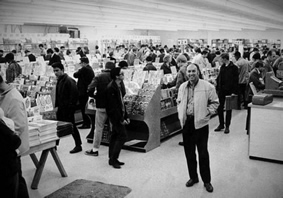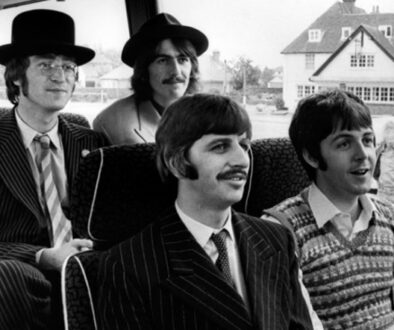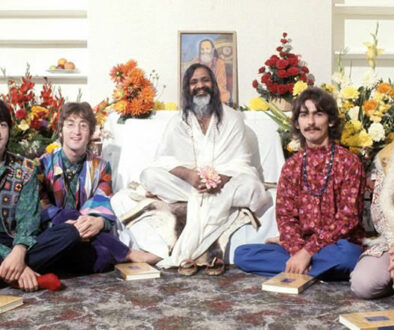All Things Must Pass
 The chronological framework of Classic Rock Review spans the years 1965-2000 in order to coincide with the rise and fall of the traditional, artist-driven, hard-copy “album”. Nearly mirroring this time span and on a parallel track is the meteoric rise and fall of Tower Records, a record “superstore” with humble beginnings to cult-like status to mainstream worldwide success to sudden demise. Directed by Colin Hanks, All Things Must Pass is a feature-length documentary that examines the company’s origins, serendipitous growth, culture, influence and its legacy.
The chronological framework of Classic Rock Review spans the years 1965-2000 in order to coincide with the rise and fall of the traditional, artist-driven, hard-copy “album”. Nearly mirroring this time span and on a parallel track is the meteoric rise and fall of Tower Records, a record “superstore” with humble beginnings to cult-like status to mainstream worldwide success to sudden demise. Directed by Colin Hanks, All Things Must Pass is a feature-length documentary that examines the company’s origins, serendipitous growth, culture, influence and its legacy.
The promise of this story is in the opening script; “In 1999 Tower Records had over a billion dollars in sales by 2004 the company was bankrupt…” However, in reality, this documentary unfolds in proportion to real time events, with much more attention spent on the decades of growth and expansion in the company and much less (not enough) focused on the sudden and shocking collapse of Tower Records and the recorded music industry as a whole.
 The focal point of the documentary is Russ Solomon, the founder of Tower Records, who got started at a young age working in his father’s variety drug store in Sacramento, California in the 1940s. Solomon’s experience in the record industry started by selling used records from the soda fountain jukebox and slowly led to Russ focusing solely on the wholesale and retail record sales of the multi-purpose drug store. After an initial attempt and failure at running an independent record store in the 1950s, Soloman incorporated Tower Records in 1960 and had several years of steady growth in Sacramento. In 1968, Solomon opened a 5,000-square-foot store in San Francisco, which lauded itself as having the “largest inventory anywhere” and met with immediate phenomenal success. Solomon then replicated this model with an even larger location on the Sunset Strip in Los Angeles, which caught the attention of many popular rock artists and record industry insiders.
The focal point of the documentary is Russ Solomon, the founder of Tower Records, who got started at a young age working in his father’s variety drug store in Sacramento, California in the 1940s. Solomon’s experience in the record industry started by selling used records from the soda fountain jukebox and slowly led to Russ focusing solely on the wholesale and retail record sales of the multi-purpose drug store. After an initial attempt and failure at running an independent record store in the 1950s, Soloman incorporated Tower Records in 1960 and had several years of steady growth in Sacramento. In 1968, Solomon opened a 5,000-square-foot store in San Francisco, which lauded itself as having the “largest inventory anywhere” and met with immediate phenomenal success. Solomon then replicated this model with an even larger location on the Sunset Strip in Los Angeles, which caught the attention of many popular rock artists and record industry insiders.
Much of the documentary talks about staff who started as simple clerks and rose to the highest executive positions when the company grew and expanded. These stories are somewhat interesting but a bit too “inside baseball” for the passive viewer. The documentary does do well in talking about its culture and relaxed atmosphere, with no dress code and an implicit tolerance of drinking and drugs with the only real “rule” being to show up everyday. Soloman claimed he had a “Tom Sawyer” style of management, letting his staff enthusiastically do the hard work and giving them the freedom to get the work done in their own style. Many of these workers were musicians or music fanatics, creating an ideal social atmosphere for the customers they were looking to attract. The documentary includes on-camera commentary by Bruce Springsteen, Elton John and Dave Grohl as well as a really cool 1974 audio advertisement by John Lennon.
Through the seventies, eighties and nineties, Tower Records grew nationally and internationally, with sales and profits rising each year until the company did over a billion dollars annually by the end of the century. Then came the collapse of terrestrial retail as digital technologies emerged starting in the year 2000 when, after 40 years of consistent growth, sales flat-lined. By no means was this collapse due in total to outside forces and some of the key players at Tower own up to mistakes. One major mistake was the panicked sale of Tower’s Japanese outlets which, ironically, are now the only store locations that are still operating today.

A native of Sacramento, Hanks spent seven years on this documentary and presents the story expertly, bringing the record store experience back to those of us who grew up in that era. The most vivid and haunting scenes coming at the very beginning and very end with a completely empty but still-in-tact Tower location in a retail strip-mall, showing the passing of a cultural pastime.
All Things Must Pass was released on DVD by MVD Entertainment Group on September 13, 2016.
~



